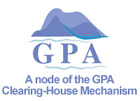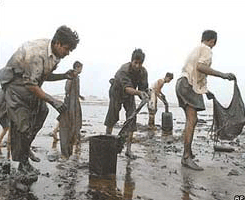
In
our minds, large accidental oil spills that hit
coasts and initially destroy everything symbolize
the problem of marine oil pollution. These spills
do, however, account for "only" 10-15
per cent of all the oil that enters the ocean every
year.
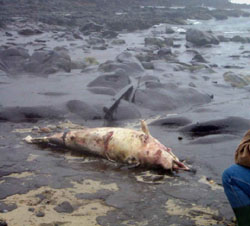
Oil-polluted
stormwater and sewage from municipalities, dribbing
and drabbing from numerous sources in coastal facilities,
gaseous hydrocarbons from our cars and motor boats,
and many more such on-land or recreational coastal
activities that we do not link to marine oil pollution
- those are the constant sources of a large and
never-ending input of oil to the marine environment.
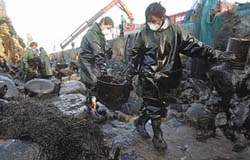
|
|
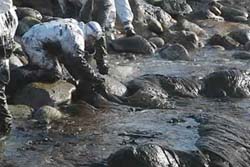
There
is a long list of oil tankers, offshore oil wells
and pipelines that have, over the years, caused
large, spectacular, accidental oil spills. Extensive,
immediate and long-term damage to coastal and marine
habitats and ecosystems, seabirds, mammals, fisheries
and people, has almost always been the result.
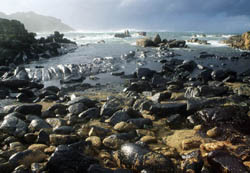
A
lot of the oil that pollutes the ocean comes from
natural sources, natural seeps in the seabed, and
cannot be stopped. But most importantly, the without
comparison largest portion of the annual input of
oil into the coastal and marine environment worldwide
comes from land-based sources as a result of ordinary,
everyday activities on land.
The
Global Marine Oil Pollution Information Gateway
...
 is published by the UNEP Global Programme of Action
for the Protection of the Marine Environment from
Land-based Activities (UNEP GPA) as the oil pollution
node of the GPA Clearing-House Mechanism. The
objective is to establish a clearing-house, a
gateway, for providing information on and a forum
for exchange of information on the global, regional
and local problems caused by marine oil pollution;
is published by the UNEP Global Programme of Action
for the Protection of the Marine Environment from
Land-based Activities (UNEP GPA) as the oil pollution
node of the GPA Clearing-House Mechanism. The
objective is to establish a clearing-house, a
gateway, for providing information on and a forum
for exchange of information on the global, regional
and local problems caused by marine oil pollution;
 will guide you to facts on oils (hydrocarbons)
and marine oil pollution, compiled and presented
by people all around the world. You will find
information on the efforts made by the international
community to address the problem and find ways
to take preventive action on the global, regional
and national level;
will guide you to facts on oils (hydrocarbons)
and marine oil pollution, compiled and presented
by people all around the world. You will find
information on the efforts made by the international
community to address the problem and find ways
to take preventive action on the global, regional
and national level;
 is a place to find people, region by region, who
are already engaged in the fight against marine
oil pollution and its impacts.
is a place to find people, region by region, who
are already engaged in the fight against marine
oil pollution and its impacts.
|

